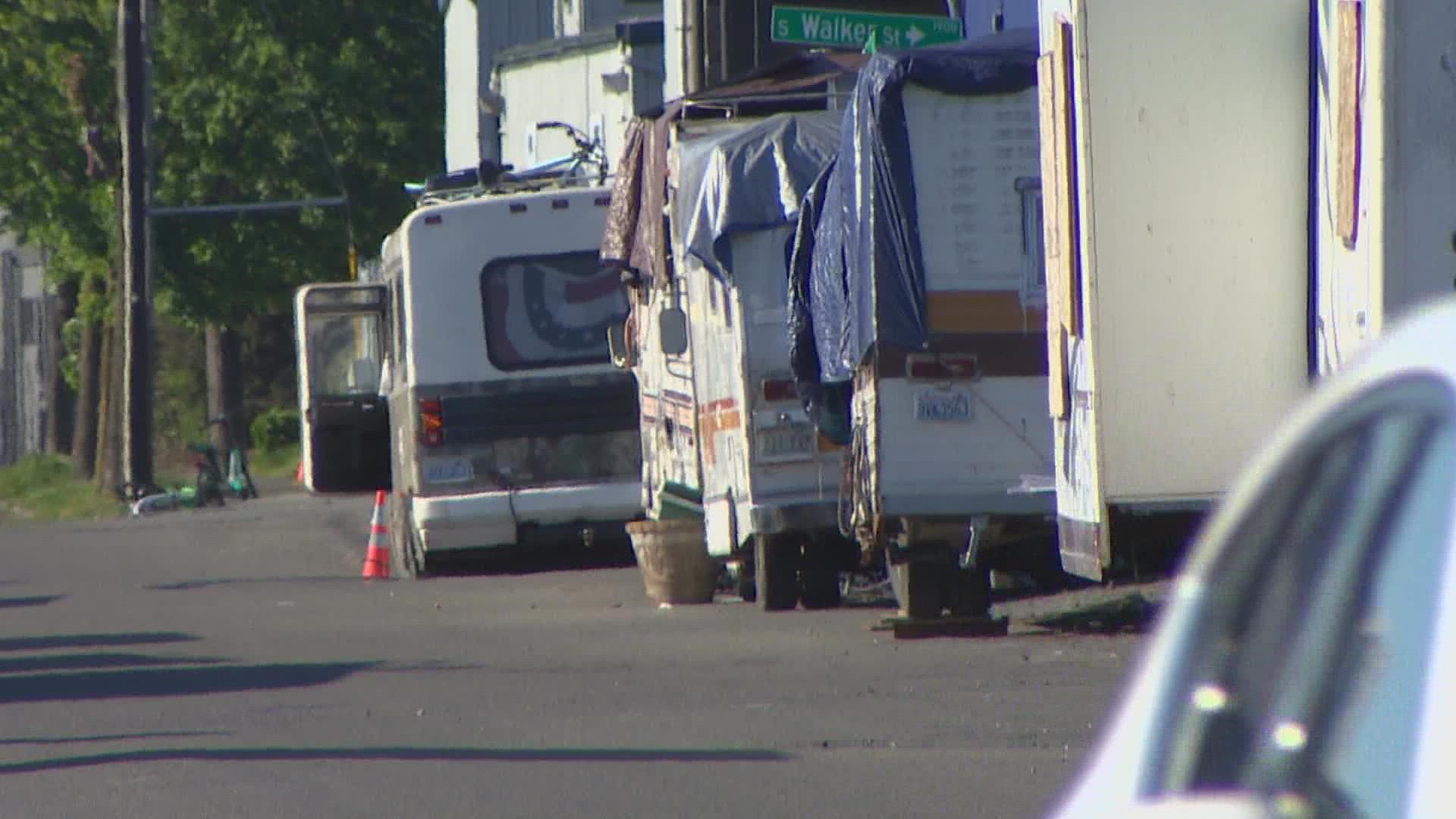SEATTLE — Seattle Mayor Bruce Harrell announced his homelessness action plan and public dashboard Tuesday, including a $118 million investment in the King County Regional Homeless Authority (KCRHA) and an encampment database to track progress in the homeless crisis.
Harrell's "One Seattle Homeless Action Plan" has six objectives to combat a crisis that was declared by Seattle's leadership as a "state of emergency" nearly seven years ago.
Objectives in Harrell's homelessness plan include:
- Supporting regional solutions
- Bringing people indoors
- Building more affordable housing faster
- Identifying needed shelter and housing
- Expanding our public safety toolkit
- Giving Seattle new ways to help
“Issues created over decades cannot be solved overnight, but we must reject the status quo where people are left to suffer unsheltered on sidewalks and in parks," Harrell said. "By acting with urgency and compassion we can – and will – move from crisis response to stability and sustainability. Seattle residents deserve to see a plan and progress. With a new level of transparency, the One Seattle Homelessness Action Plan was designed to display informative and important data and provide a roadmap for how the city is making progress on this crisis – today and in the long-term.”
Harrell said the city will give the KCRHA $118 million to leverage its efforts on a regional basis.
In total, Harrell said the City of Seattle is spending $173 million in its 2022 budget to fund his homeless action plan.
Seattle’s spending on homelessness increased from $77 million in 2018 to $173 million in 2022 – a 125% increase in the last four years.
The mayor said $572 million – enough to build 1,551 new units – was earmarked for affordable housing projects. The figure includes state and federal resources in addition to $138 million in taxpayer money, according to the action plan.

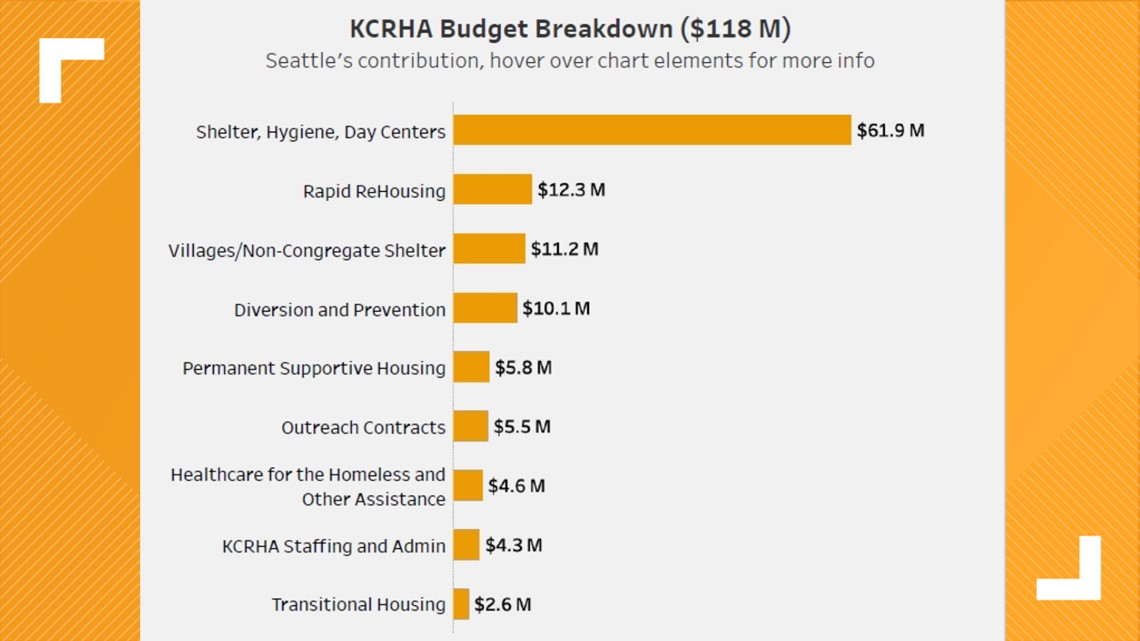
The city's goal is to offer shelter with a bed ready and waiting for every person living in a homeless encampment before any potential sweeps.
More than 300 people were referred to indoor shelter through March, according to Harrell's office.
“It is inhumane for us to turn a blind eye to people who are forced to live in parks and on sidewalks," the report said. "These areas are often unsanitary and unsafe for living. Mayor Harrell believes we cannot accept this as the status quo.”

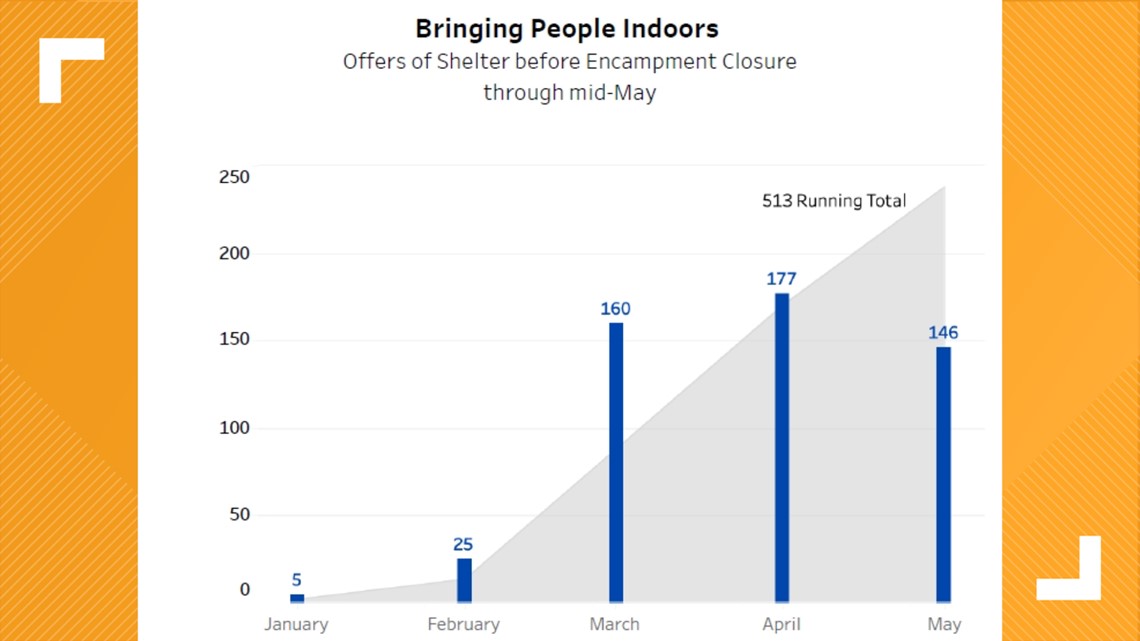
The homeless action plan hopes to build affordable housing faster instead of being "needlessly delayed by bureaucracy." Harrell said his office will approve all affordable housing project permits within 12 months of submission.
The City of Seattle awarded $18.9 million to the Low Income Housing Institute to acquire Dockside Apartments and open the building as affordable housing this summer.
Dockside said it will provide 70 new permanent homes for people experiencing homelessness and additional 22 homes for individuals earning up to 50% of the area median income ($45,300).
“We know access to housing is both a symptom of and a solution to the homelessness crisis,” Harrell said. “This plan prioritizes creating new affordable housing and meeting immediate shelter and housing needs. Both are critical to our mission to bring people indoors and prevent people from becoming homeless in the first place. Dockside is a great example of how we can strategically deploy our resources to make an immediate impact, as we continue toward our goal of identifying 2000 new units for people experiencing homelessness this year.”
Enhanced shelters are open 24/7 and will provide services such as meals, hygiene, storage and caseworkers, Harrell detailed in his action plan. By the end of 2022, Harrell said he will identify 2,000 total units for shelter and housing.
Just last month, Harrell became the first mayor to acknowledge a factual basis between encampments and public safety, with fire responses and shootings on the increase among the homeless population.
The City of Seattle said there have been 3,707 emergency medical responses (31 per day) and 608 fires (five per day) at homeless camps between January and April 2022. An average of one shooting or shots fired emergency involving a victim or offender experiencing homelessness happens every two days in Seattle, according to city data.
Harrell said he is working towards a "holistic approach" to public safety that serves the public by identifying 911 calls safe for a non-officer to respond, supporting alternate response programs (Health One, Nurse Navigators, 988 and Community Service Officers) and coordinating with regional partners to share data.

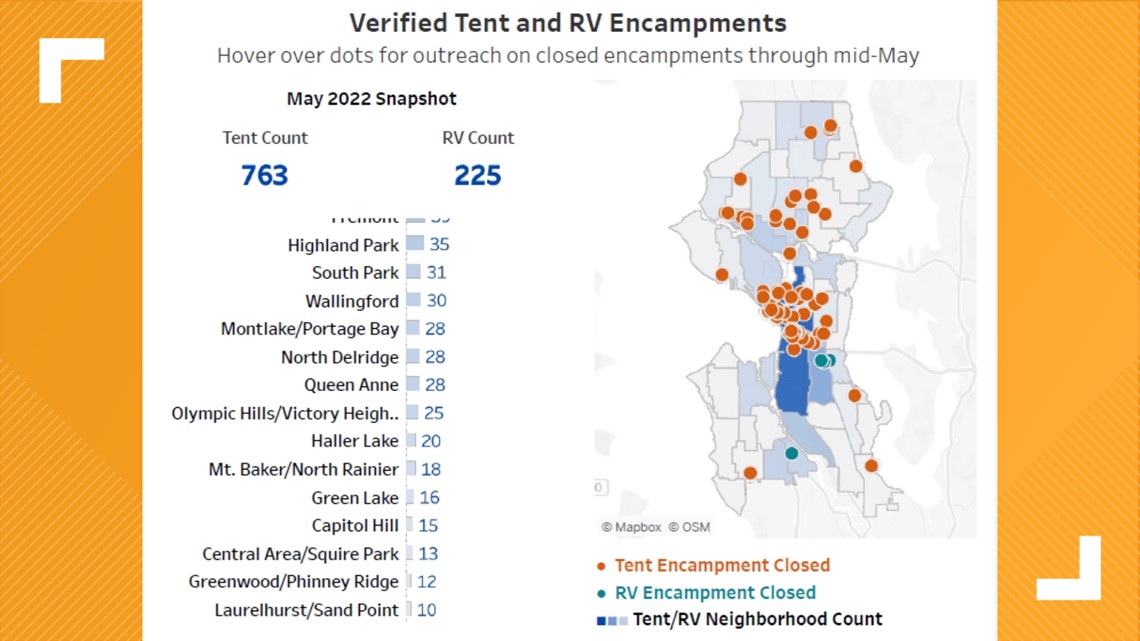
Communities of color disproportionally affected by homelessness
There are more than 40,000 people in King County experiencing homeless, according to the King County Department of Community and Services. City officials reported 763 tents and 225 RV encampments throughout Seattle as of May.
Harrell's action plan said Black and American Indian/Alaska Native communities are disproportionally affected by homelessness. 30% of people receiving homelessness services are Black, but they represent just 6% of the population, according to the King County Regional Homelessness Authority. 5% of American Indian, Alaska Native or Indigenous people are receiving homelessness services, but represent just 1% of the population.

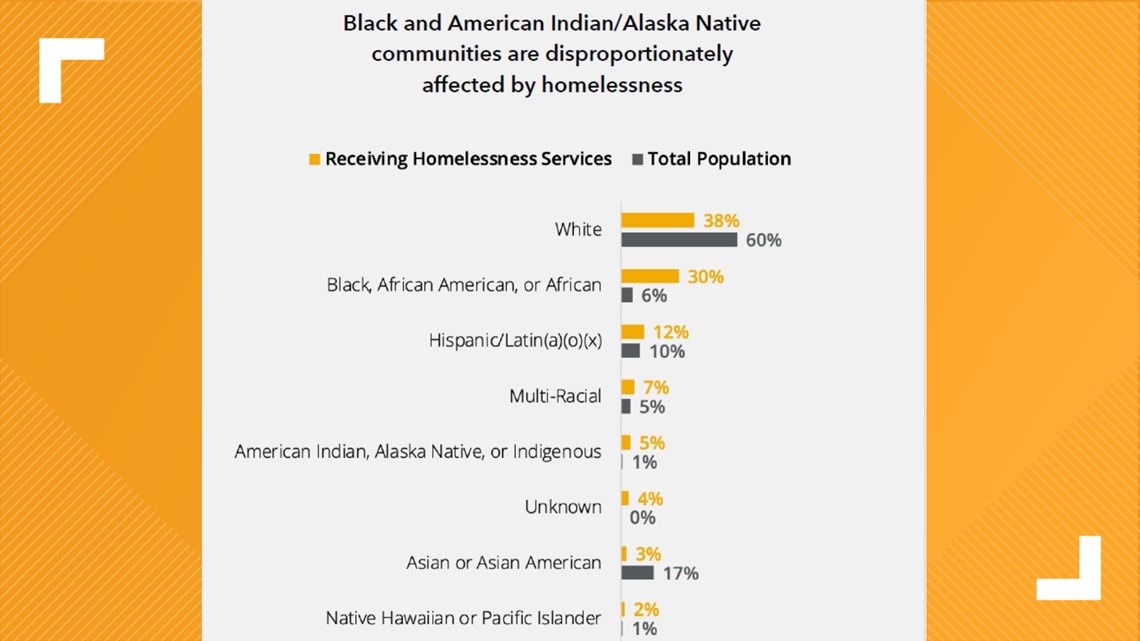
The mayor cited affordability, equity and health as three primary contributing factors in Seattle's homelessness crisis. He stressed the impact of rising home prices, lack of affordable housing developments and income inequality that are "particularly acute in Seattle."
Harrell's office said equity is central to homelessness efforts because of the impact on Seattle's communities of color.
"There is a long history of race-based zoning and financial discrimination which has led to generational wealth gaps by race and disparities in home ownership rates," the report said. "These impacts are still felt today by many Seattle residents, housing and unhoused.”
His address comes after the KCRHA said it needs almost $230 million in 2023 to address the issue and an increase over previously budgeted dollars. The KCRHA would like to build out designated RV lots for dilapidated vehicles, which have been problematic in Seattle over time.
In fact, in Seattle's Georgetown neighborhood, the playfield and residential housing nearby have become a haven for decrepit, non-running recreational vehicles. Over the weekend, neighbors said one man in the RV encampment broke into a woman's home and took his pants down before she called 911 and was able to convince him to leave.
"When people start breaking into our neighbor's home, that's a huge issue. The petty crime, that's a huge issue," said Torrie Arnold, who said that he feels unsafe on his own block. “What has become a temporary situation has become more and more permanent, and it seems like they act with impunity because there isn't any recourse," he said. "You want to be compassionate as possible, but also want to practice fairness."

